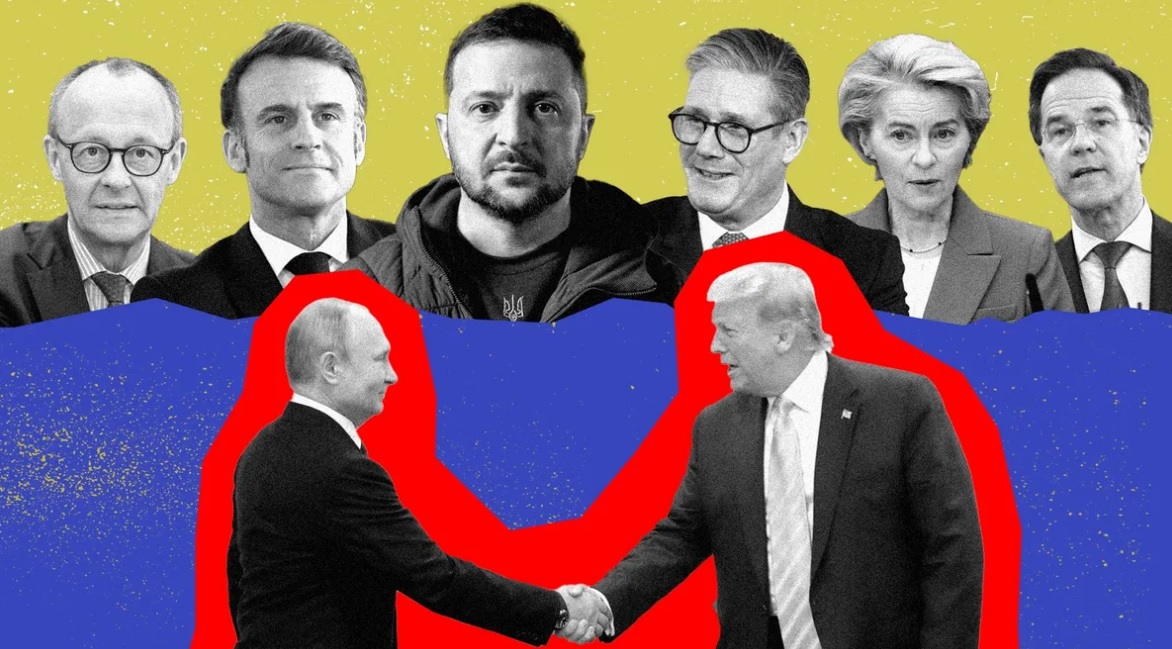 Pic.: FT
Pic.: FT
So far, the Russian leader’s refusal to engage on terms set by others has been met with little resistance — and certainly not enough to compel concessions or alter the course of his war, ‘The Financial Times’ notes.
The clearest sign of that came when US President Donald Trump seemed to excuse the Russian leader’s no-show on Thursday and simultaneously questioned the whole point of the Russia-Ukraine talks, saying: “Nothing’s gonna happen until Putin and I get together.”
It was a gift to Putin, who has long sought to normalise US-Russian relations. For the Ukrainians, it revived their worst fears — that Trump will seek to cut a deal with Putin over their heads and sell Ukraine down the river.
In the days that followed, the pace of diplomatic activity picked up. European and Ukrainian leaders met to call for an unconditional, 30-day ceasefire in the war, warning Putin of tough new sanctions if he failed to comply — a demand supported by the US.
Putin rejected the demand but came back with his own counterproposal — direct Russia-Ukraine talks, to be held in Istanbul. Trump welcomed the idea and urged Zelenskyy to take part. The Ukrainian leader acceded to his request and challenged Putin to come to Turkey himself for what would have been only the second in-person meeting between them.
But the Russian leader refused and sent a low-level delegation instead, led by his former culture minister Vladimir Medinsky.
The meeting, held on Friday, wrapped up after less than two hours, without a breakthrough. The two sides agreed to swap thousands of prisoners-of-war, but made no progress on a lasting ceasefire.
European leaders expressed their frustration.
Starmer, Macron, German Chancellor Friedrich Merz and Polish Prime Minister Donald Tusk ended up issuing a joint statement saying Putin’s position was “unacceptable”.
The four leaders, together with Zelenskyy, also held a joint phone call with Trump. Starmer said there was now “a high level of co-ordination” between a core of four countries — the UK, France, Germany and Poland — “and the US administration of President Trump” on Ukraine.
“It is just drip, drip, drip,” said one European foreign minister, referring to Europe’s messaging to the Trump administration in the hope the president eventually shifts position on Russia.
But so far that European rhetoric has not been matched by anyone in the Trump administration, which has continued to express frustration with both sides in the conflict, without singling out Russia, and hint that it could walk away.
read more in our Telegram-channel https://t.me/The_International_Affairs

 11:56 22.05.2025 •
11:56 22.05.2025 •






















